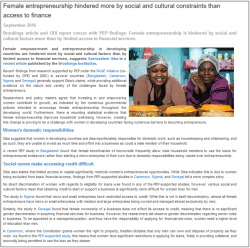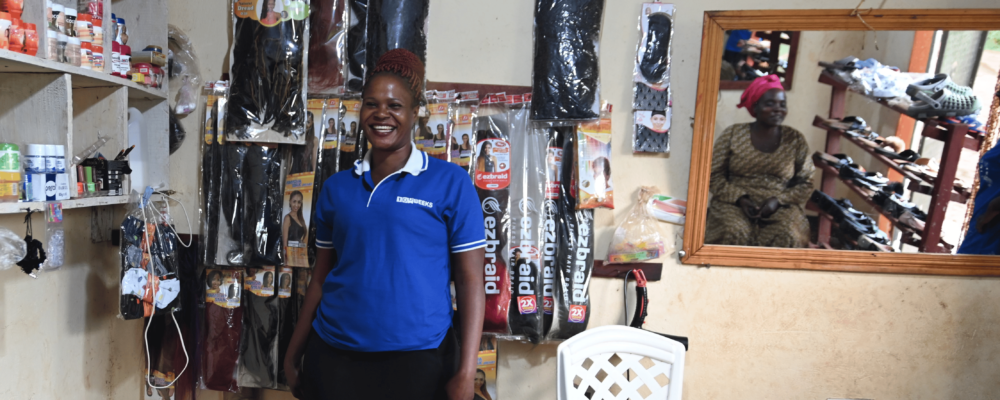- Research shows that female empowerment and entrepreneurship in developing countries are hindered more by social and cultural factors than by limited access to financial services.
- Although no direct discrimination against women in regard to eligibility for loans was found, various social and cultural factors make obtaining credit to start or support a business significantly more difficult for women.
- To address this inequality, policymakers are advised to: 1) enforce legal recourse to ensure women’s rights to family property; 2) invest in youth programmes to prevent discriminatory norms from being transmitted to the next generation; and 3) provide education to both men and women, e.g. through gender role conversations that challenge norms relating to what is ‘men’s’ and ‘women’s’ work.











